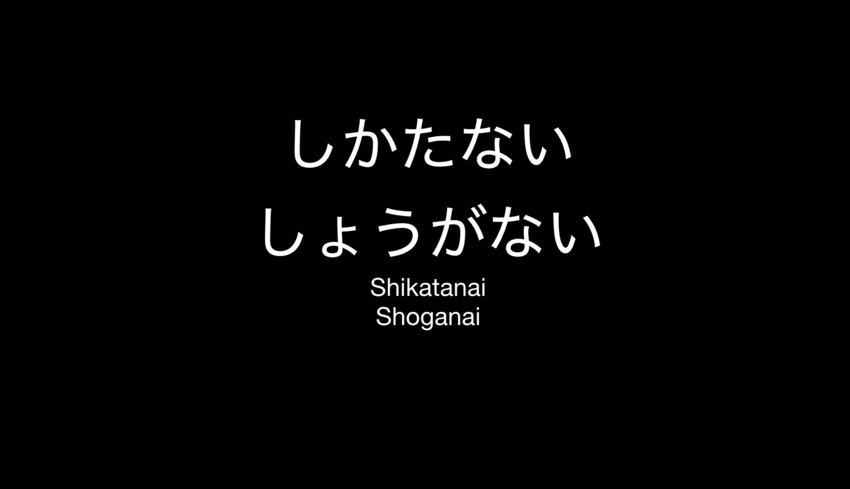- Hashtag "#uchikuraco" returned 920 results.
 しかたない
しかたない
しょうがない
Shikatanai
Shoganai
しかたない しょうがない Shikatanai or Shoganai is an important word in Japanese. It can be translated "it can't be helped." It's often used to describe Japanese culture, thinking and values. Shikatanai or Shoganai is essentially a philosophy. It says that if something is out of your control it's better to quickly accept it and move on.
You sometime say 「しょうがないか」「しかたないか」to reconfirming and justifying that fact that you given up.
![お疲れ様です おつかれさまです...]() お疲れ様です
お疲れ様です
おつかれさまです
Otsukaresama Desu
お疲れ様です
おつかれさまです
Otsukaresama Desu
Otsukaresama desu is a key phrase that you will need to master if you plan to work in Japan. Whever you meet someone who is more senior than you, you say おつかれさまです。
The straight translation of this phrase would be "being tired" ... This means, you are thanking someone for their hard work.
Noe: You do not use this term for someone is not your senior. You say 「おつかれ」「おつかれさま」... Never「おつかれさまです」
![おじゃまします Ojyama ...]() おじゃまします
おじゃまします
Ojyama Shimasu
"Ojama shimasu" literally means, "I'm going to get in your way" or " I will disturb you." It is used as a polite greeting when entering someone's home. ... This expression is used in various situations. When entering someone's house or room, it means "Excuse my interrupting."
and
This set phrase is said whenever you enter someone else’s house, signifying that you know you are going to be a bother and apologize in advance. When using this phrase, you are signifying your own modesty and sense that you are intruding.
![よろしくおねがいします Yor...]() よろしくおねがいします
よろしくおねがいします
Yoroshiku Onegai Shimasu
This Phrase is used a lot in Japan.
よろしくおねがいします
Yoroshiku Onegai Shimasu
The phrase is よろしくお願いします (yoroshiku onegaishimasu). The simplest, quickest and easiest way to understand yoroshiku onegaishimasu, and the less formal dozo yoroshiku is that it means both please and thank you. It's used to make a request and also to thank the person, either before or after they do it for you.
きらい is an opposite of すき which we explained in the following post.
https://en.bloguru.com/japaneseonline/345926/suki
You can ask onion 「_____すき?きらい?」to see if the person likes or nor the _______ you asked.
If someone say わたし が すき、それとも きらい。
Watashi Ga Suki, soretomo Kirai.
This I making if you like me or dislike me.
Like in English, if you are asked this question, your answer should be すき.
![うれしい Ureshii...]() うれしい
うれしい
Ureshii
うれしい
嬉しい
Ureshii
Means
happy / glad / pleasant
If you are happy about something ... You just say うれしい
まいった Maita means "You win".
In Kendo and other martial arts, if you say まいった ... opponent wins.
You also use it like "You win" in conversation.
If you say 「まいった まいった」... this tells people you give up.
コンビニ ... Konbini
It's how Japanese call "convenience store".
7 Eleven
Family Market
Lawson
When you are sorry ... You say "Gomen".
It is a very casual form ... To be more polite you say ごめんなさい "Gomen Nsai"
To be even more formal, You say 申し訳ありません。"Moushiwake Arimasen"
- If you are a bloguru member, please login.
Login
- If you are not a bloguru member, you may request a free account here:
Request Account